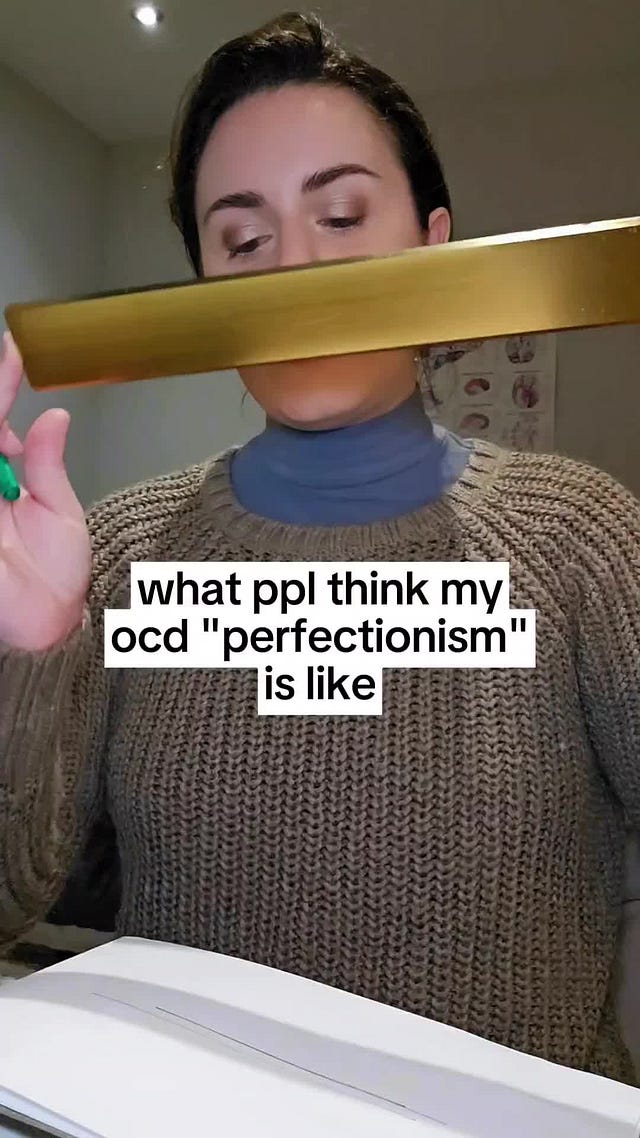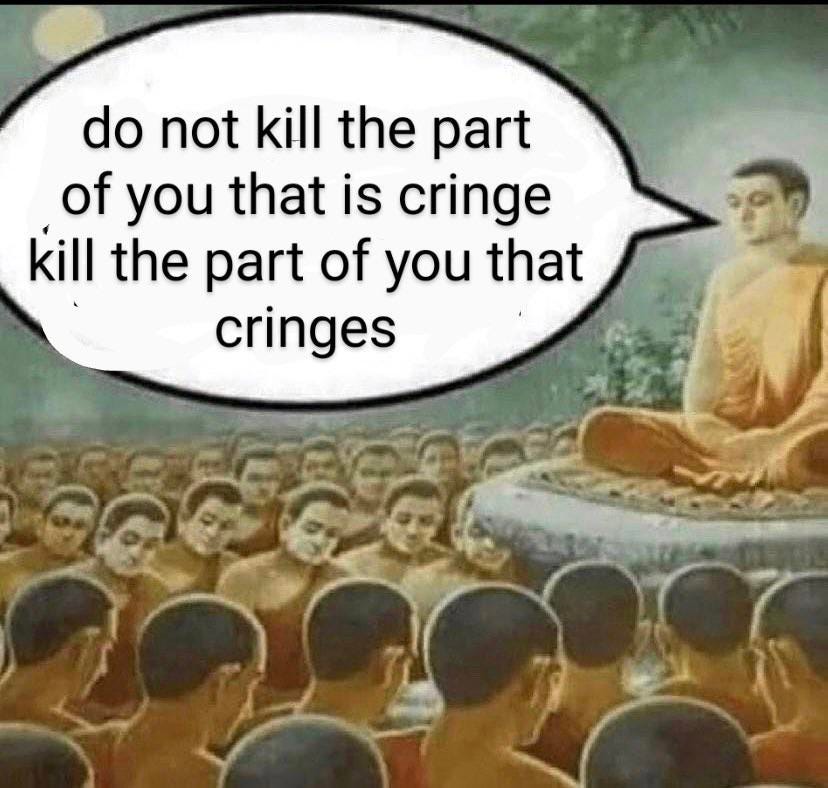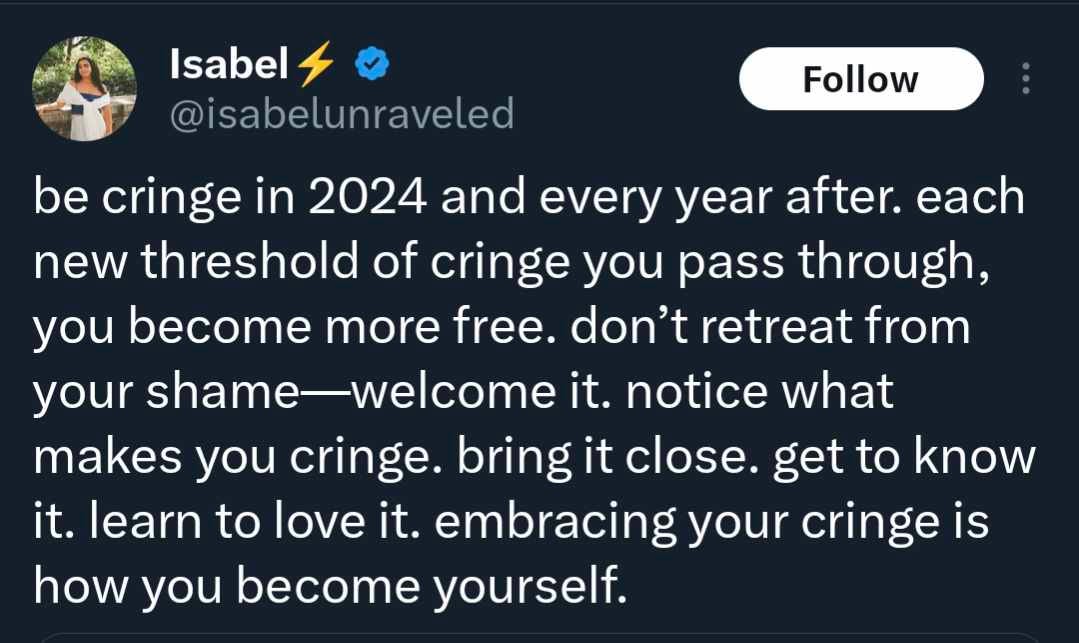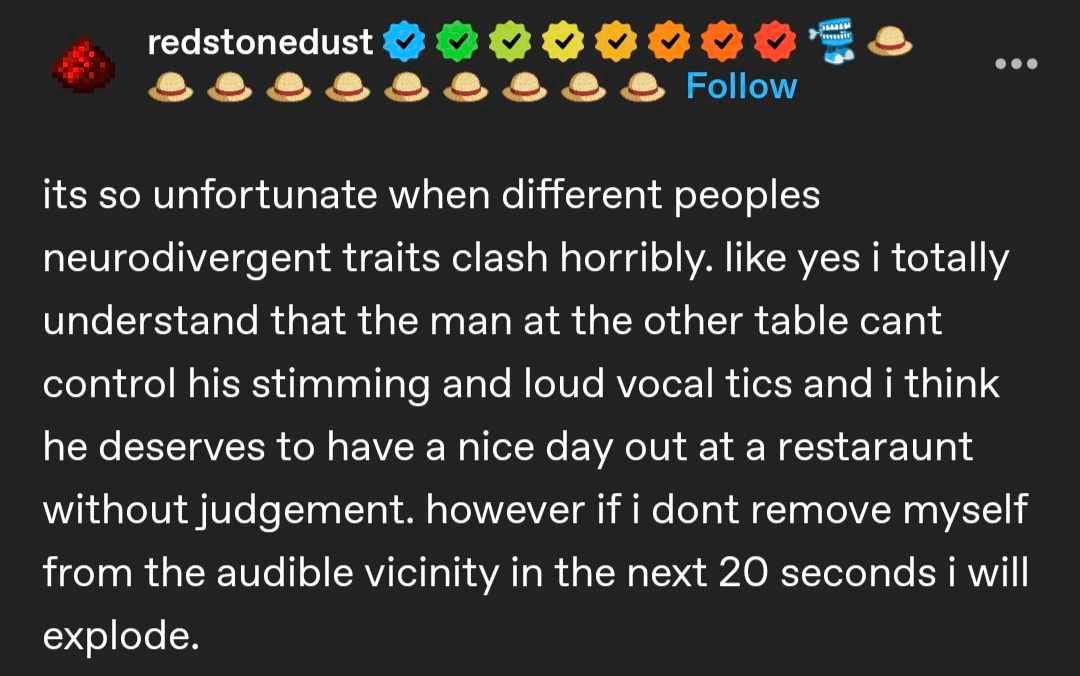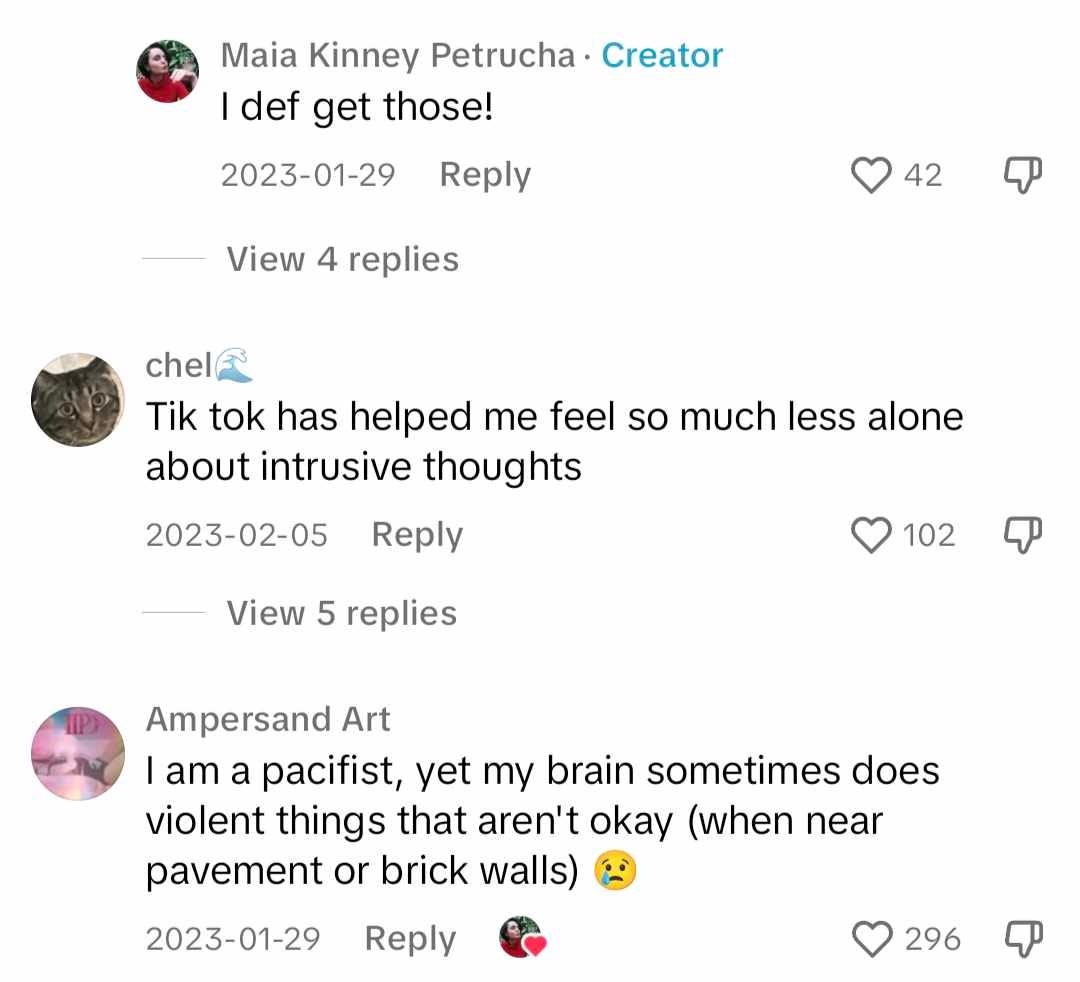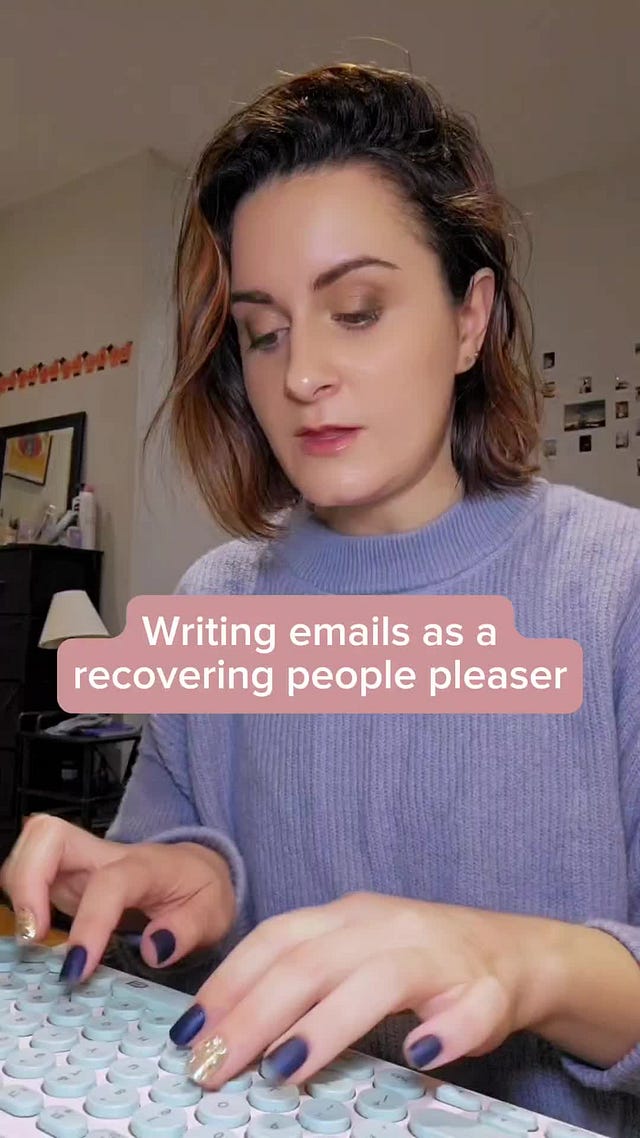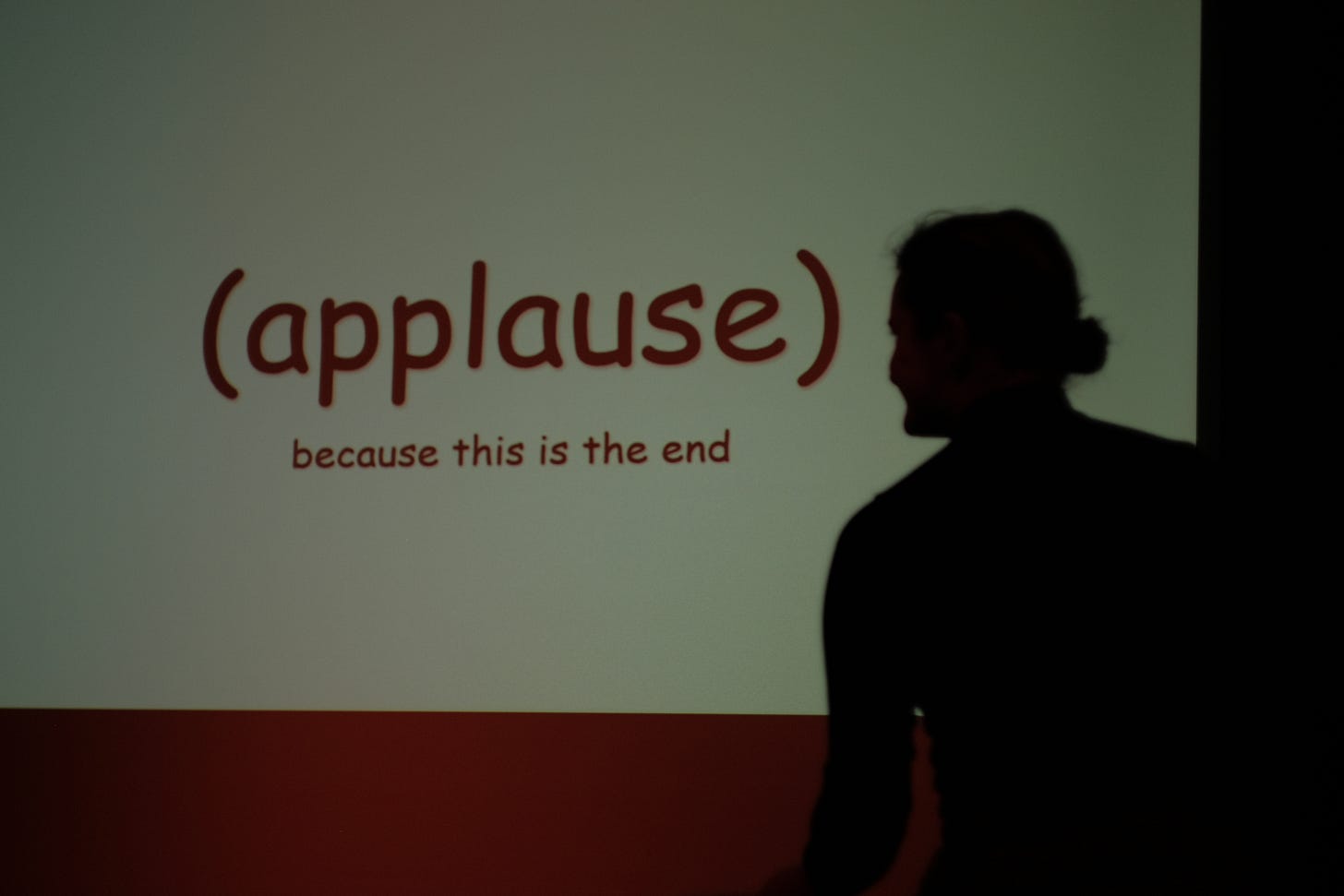Review of "So OCD!"
a reflection on the ability to build community and awareness through art forms that combine comedy, education, and vulnerability. Or, why my friend's one-act play was hella rad.
Last week, I went to Philadelphia to see my friend Maia’s performance of her one-act play So OCD! My fiancé Cal was the photographer - all pictures included of the performance are by Cal Churchill (Instagram: calchurchillnyc)
(I was the tripod attendant for the phone recording, but thankfully there was a more professional videographer so I could focus on the performance.)
I first saw So OCD! at The Tank in 2022, where it was described as follows:
Maia Kinney-Petrucha (Writer/Performer)
Susannah Holub (Writer/Performer)
Anna C. Michael (Director)What if almost everything you did felt like it could bring about the end of the world? Fear experts Maia and Susannah take you on a tour of their darkest secrets (and yours) in this one act comedy all about living with OCD and anxiety. So OCD! explores the irony, horror, and pure ridiculousness of growing up in a constant state of fight-or-flight through an interactive, multimedia play. When they don their lab coats, they’ll teach you the difference between real OCD and its stereotypes, introduce you to machines and algorithms to bring out the fears in all of us, and maybe sing a song or two. In sharing our experiences, we hope to open a larger dialogue about what OCD really looks like at the individual level and create a community that empowers others to investigate their own mental health journeys.
Content Warnings: Discussions of mental illness, death, COVID, and disease
In the year and a half between these two performances, I’ve learned a lot about OCD in general from Maia's educational TikToks that illustrate how her OCD affects her life. However, she doesn’t just make OCD-specific content: her comedic writing and acting is enhanced by her study of neuroscience to educate her audience about a wide range of psychological phenomena (aka: cool shit about our brains).
We are constantly making new scientific discoveries about brains that help explain how neurotransmitters work on the cellular level. Neuroscience is so fascinating because every brain is unique and there is still so much that we don’t know. Maia and other diligent neurodivergent/disabled creators make sure to point this out: not everyone's OCD or any other disorder is going exhibit every symptom at the same severity. There is real harm done when people assume otherwise. This means that people who don't have have the “typical” obsessions with cleanliness and a compulsion to line up their pencils are often undiagnosed or misdiagnosed. Often with these stereotypes, people don't understand that the “disorder” part means that this is something that has a significant impact on your life, and not just in fun and quirky ways. It's more likely to show up in exhausting, debilitating ways. No, everyone is not “a little bit OCD,” or “a little bit autistic” because the severity that warrants the term “disorder” is inherent to our conditions.
 Tiktok failed to load.
Tiktok failed to load.Enable 3rd party cookies or use another browser
The title of the one-act play comes from the common saying “I’m so OCD,” usually said by a person without OCD before/after they express a habit or opinion about organization/cleanliness. However, when they are presented with the lived experiences of someone diagnosed with OCD, the response is something along the lines of “well, not like that.”
Similarly, when allistic people joke about having autistic “quirks” such as recognizing patterns or trouble with social cues, it trivializes the very real reasons autism is considered a disability.
When I’m experiencing extreme fatigue, physical pain, skill regression, social withdrawal, and executive dysfunction due to my disabilities (hello autistic burnout), it goes way beyond the experiences of a neurotypical and able-bodied person feeling “tired.” It’s also a different experience than regular burnout. It’s dangerous and can even be life-threatening to “just push through it.” It can take months and even years for autistic people to recover from burnout.
I know it’s impossible for allistic people to fully understand this experience, just like I can’t fully know what it’s like for Maia to experience compulsions. But I don’t have to know exactly what it feels like to listen and trust that she is the expert in her own lived experience. I learn more about the ways I can best support her as a friend, working together to meet each others’ accommodations. But that only works if you’re open about your needs and limitations, which can be difficult when you’re so used to pushing them down and pretending they don’t exist for the sake of appearing “normal.”



It's nerve-wracking for artists and creators to put their story out there and hope that it will create emotional resonance with someone. Vulnerability is courageous in a world where everything can be recorded and you never know what might be used against you. People might relate to your experiences once you start sharing them, or they might judge you for being too much, too real, too weird, too broken to be relatable.
We coat ourselves in thick protective layers of irony and comedic self-deprecation, judging ourselves for being “cringe” before others get the chance, which experts such as clinical psychologist Dr. Martha Deiros Collado would say is in opposition to a healthy self-image.
From Vice Article “Will Being Cringe Set You Free? An Investigation”:
“For me, the way to beat ‘cringeworthy-ness’ is to grow greater self-acceptance,” she says. “All of us can be cringe at some point – absurdity is just a part of what makes us human. If you can learn to appreciate the cringey sides of yourself, laugh at them with others and accept it’s just a part of you – you’re more likely to land in a place of joy and contentment than embarrassment and shame.” In other words, working on your self-esteem in a more general sense is probably the best way to stop caring so much about your every move.
It’s also worth realising that people really don’t care as much as you think they do. It is scientifically proven that we are not the main character and multiple studies have shown that we consistently overestimate the impact of our shortcomings. We defy all sorts of abstract social norms every day, yet we continue to move throughout the world and have never died from being a bit odd or out-of-step.

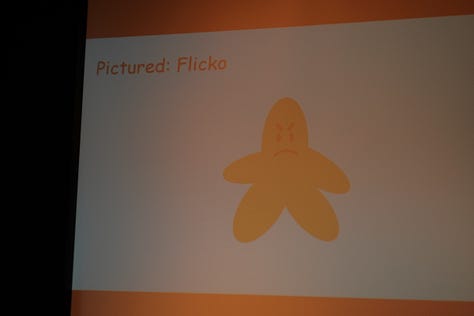

So OCD! is full of great scenes, but one of my favorites involves Maia and Susannah sitting across from each other, rapid-fire grilling on how their symptoms showed up in childhood.
“Did you do [x]?”
“Yes! And I always had to do [y] after. Did you also do [y]?”
“No…but I did have to do [z] exactly [n] times before I did [x].”
Empathy is knowing that even if we can’t fully understand each other because we are all unique, we can still be in community and understand each other where it counts.
Solidarity and intersectionality are about recognizing that every person has different perspectives, experiences, symptoms, and coping mechanisms. People carry traumas that are often misunderstood, ignored, complex, and so generational they are ingrained in our DNA.
It’s especially important to support and empathize with each other when we experience that dissonance that comes from having experiences that are not in alignment or may even clash with each other.
This is part of being human, and an inherent part of being among other humans. Relationships are processes of rupture and repair. Healing is a process of learning how to navigate through triggers, treating ourselves and each other with compassion and grace.
As an autistic person whose feels empathy so strongly that I get sympathy pains when a movie character is injured, I bristle when neurotypical people assume that autistic people are incapable of empathy just because we express it differently.
We spread seeds of empathy and compassion, finding enough common ground to feel like we are among our own. We put down roots where we have the nourishment required to support us while we grow, and we will gladly support others in kind. That is community healing in action, and it is happening on a never-before-seen scale in the comments sections of my favorite creators and through various art forms everywhere.
Every time we are honest and vulnerable with each other about how our disorders affect us, we create cultures of inclusivity and compassion.
I love when people do their stims and rituals and tics without apology. When they express boundaries, ask for accommodations, ask if we can do things a different way that meets their needs, it means they feel courageous and safe enough to self-advocate - an act of self-love. As anxious recovering people-pleasers who are learning how to do these things and listen to our nervous systems for the first time, it’s so important to support each others’ artistic expression in that process.
So OCD! is a thoroughly enjoyable combination of witty dialogue, audience participation, neuroscience and psychology education, improv, laugh-out-loud comedy, puppetry, ukulele interludes, singing, and monologues that hit you right in the heart. If you ever get the chance to see it, I implore you to go.
Also, make sure to follow for updates on future performances and/or other stuff:
If art is the courageous act of baring one’s soul to the world through raw talent, Maia and Susannah are true artists with So OCD! I can’t wait to see how it continues to evolve and grow.
10/10, no notes, except for this very long one saying that it’s great and we need more of it.



